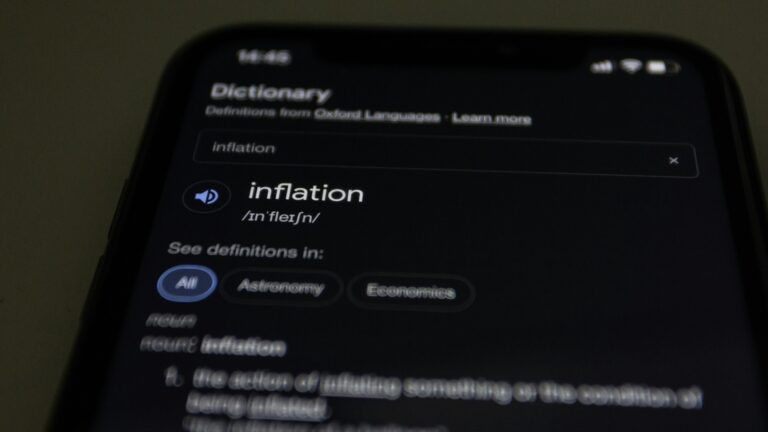Disclaimer: This article provides general information on UK fintech apps and is not financial advice or a recommendation to buy or use any specific product. Information is based on publicly available data as of June 2025 and may change. Always conduct your own research, understand terms and conditions, and consult a qualified financial advisor for personalized guidance. Investing in financial products, especially crypto, involves risk including potential loss of capital.

Introduction
Fintech is revolutionizing how individuals in the UK manage money. With the cost of living rising and consumers demanding smarter ways to save, invest, and spend, 2025 has seen a surge in feature-rich fintech apps. This guide explores the top fintech apps in the UK, helping you choose the right one based on your financial needs and habits.
The Fintech Revolution in the UK (2025 Context)
The UK remains a global leader in financial innovation, with London as one of the world’s fintech capitals. Consumers in 2025 are increasingly turning to mobile-first solutions that offer personalization, automation, and real-time insights. The Financial Conduct Authority (FCA) ensures these apps meet rigorous standards for consumer safety and transparency.
How We Selected the Top Apps
To maintain transparency and trust, we selected apps based on:
- FCA regulation and compliance
- User reviews (Google Play, App Store)
- Security features (encryption, two-factor authentication)
- Innovative tools for budgeting, saving, investing
- Fee transparency and value for money
- User experience and app interface
Top Fintech Apps in the UK (2025)
Monzo
Purpose: Digital banking and budgeting
Key Features:
- Instant notifications for transactions
- Savings Pots and Budgeting tools
- Fee-free spending abroad
- Business accounts for freelancers/entrepreneurs
Ideal For: Everyday users, budget-conscious individuals, freelancers
Pros:
- Excellent user interface
- Real-time insights
- Strong community support
Cons:
- Premium features behind a paywall
Fee Structure: Free basic plan; Monzo Plus/Monzo Premium for advanced features
Security: FCA-regulated, FSCS protection
Starling Bank
Purpose: Mobile banking with a focus on business and personal finances
Key Features:
- Spaces for savings
- Integrated business banking
- Spending insights and categorization
- No overseas card fees
Ideal For: Small business owners, travelers, savers
Pros:
- 24/7 UK-based support
- Highly rated mobile app
Cons:
- No physical branches
Fee Structure: Free personal and business accounts; fees apply for overdrafts
Security: FCA-regulated, FSCS protection
Visit Starling Bank Official Site
Revolut
Purpose: Global money management, crypto, and investing
Key Features:
- Multi-currency accounts and exchange
- Crypto trading and stock investing
- Instant spending notifications
- Budgeting and analytics
Ideal For: Travelers, crypto users, modern investors
Pros:
- Competitive foreign exchange rates
- Integrated crypto/stocks
Cons:
- Some features restricted to paid plans
- Limited customer service on free tier
Fee Structure: Free plan; Plus, Premium, Metal subscriptions
Security: FCA-regulated (UK), insured balances
Plum
Purpose: Automated saving and investing app
Key Features:
- AI-driven automatic savings
- Investment portfolios (ISAs, pensions)
- Expense tracking and budgeting
Ideal For: Beginners in investing, passive savers
Pros:
- Easy automation
- User-friendly
Cons:
- Investment returns not guaranteed
- Premium tools require subscription
Fee Structure: Free for basic saving; Plum Plus, Pro, Ultra subscriptions
Security: FCA-regulated, uses secure APIs
Emma
Purpose: Budgeting and subscription management
Key Features:
- Account aggregation across banks
- Subscription tracking
- Spending categories and analytics
Ideal For: Budgeters, debt reducers, students
Pros:
- Great UI/UX
- All accounts in one place
Cons:
- Premium plans needed for advanced insights
Fee Structure: Free basic version; Emma Plus/Pro/Super for advanced features
Security: FCA-registered, read-only access to bank data
Chip
Purpose: Saving and investment automation
Key Features:
- Auto-savings based on spending habits
- Investment funds (with risk levels)
- Offers interest on savings with premium tiers
Ideal For: Passive savers, young professionals
Pros:
- Hands-free saving
- Competitive returns
Cons:
- Some savings require paid plans
Fee Structure: Free basic plan; paid tiers offer better returns
Security: FCA-authorised; funds held in segregated accounts
👉 Comparison Table
| App | Key Strengths | Free Tier | Best For |
|---|---|---|---|
| Monzo | Budgeting + Pots | ✔️ | Everyday banking |
| Starling | No FX fees, great for biz | ✔️ | Freelancers, travelers |
| Revolut | Trading + global accounts | ✔️ | Investors, crypto users |
| Plum | Auto-saving + investing | ✔️ | Beginners, passive savers |
| Emma | Spend tracking & insights | ✔️ | Budgeters, students |
Choosing the Right Fintech App for You
When selecting a fintech app, consider:
- What are your goals? (budgeting, investing, saving, travel spending)
- Do you need FSCS protection? (important for banking apps)
- Are you comfortable paying for premium features?
- Do you want everything in one place, or separate tools for different needs?
These questions will help narrow down the best fintech app tailored to your situation.
Staying Safe with Fintech Apps
To protect yourself:
- Only use apps regulated by the Financial Conduct Authority (FCA)
- Enable two-factor authentication
- Avoid apps not listed in the FSCS protection scheme
- Be cautious of phishing emails or fake login screens
Conclusion
Fintech apps have become essential financial tools in 2025. Whether you’re looking to better manage your day-to-day expenses or dip your toes into investing, the UK’s fintech landscape offers something for everyone. Choose the app that fits your needs—and always prioritize security and financial literacy.
About the Author
Jaya is a finance and technology writer with a focus on consumer-friendly reviews, fintech trends, and digital innovation. He is not a certified financial advisor but specializes in creating content based on official sources and factual insights.
Last Updated: June 12, 2025









